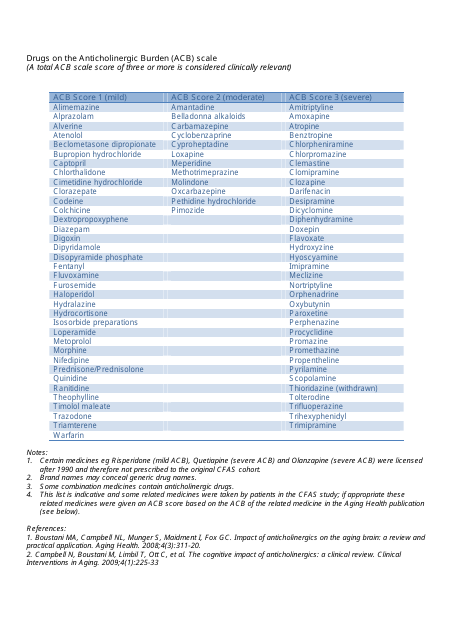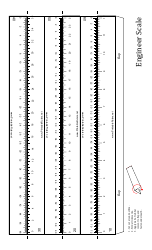Drugs on the Anticholinergic Burden (Acb) Scale
The Drugs on the Anticholinergic Burden (ACB) Scale is used to assess the potential side effects of certain medications on the body's cholinergic system.
The Drugs on the Anticholinergic Burden (ACB) Scale are typically identified and compiled by researchers and healthcare professionals. They analyze the pharmacological properties of different medications to determine their anticholinergic effects and assign them a score on the ACB Scale.
FAQ
Q: What is the Anticholinergic Burden (Acb) Scale?
A: The Anticholinergic Burden (Acb) Scale is a tool used to measure the potential anticholinergic effects of medications.
Q: What does it mean for a drug to have anticholinergic effects?
A: Drugs with anticholinergic effects inhibit the neurotransmitter acetylcholine, leading to various side effects such as dry mouth, blurred vision, and cognitive impairment.
Q: Why is the Anticholinergic Burden (Acb) Scale important?
A: The Acb Scale helps healthcare professionals assess the cumulative anticholinergic effects of multiple medications, which can have negative impacts on older adults' cognitive and physical health.
Q: Do all drugs have anticholinergic effects?
A: No, not all drugs have anticholinergic effects. Only certain medications act on the acetylcholine system and have the potential for anticholinergic side effects.
Q: Are there any commonly used drugs with high anticholinergic burden?
A: Yes, some commonly used drugs with high anticholinergic burden include diphenhydramine (Benadryl), amitriptyline (Elavil), and oxybutynin (Ditropan).


